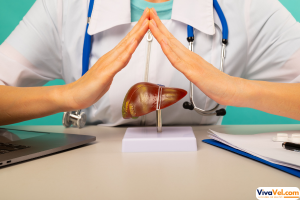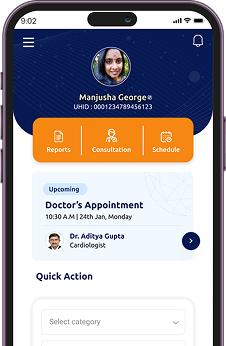About Bone Marrow Transplant
The Bone Marrow Transplant (BMT) package at Max Super Specialty Hospital, New Delhi, includes a comprehensive treatment plan at an estimated cost of USD 29,000 for a full-match allogenic BMT or USD 35,000–39,000 for other allogenic transplants.
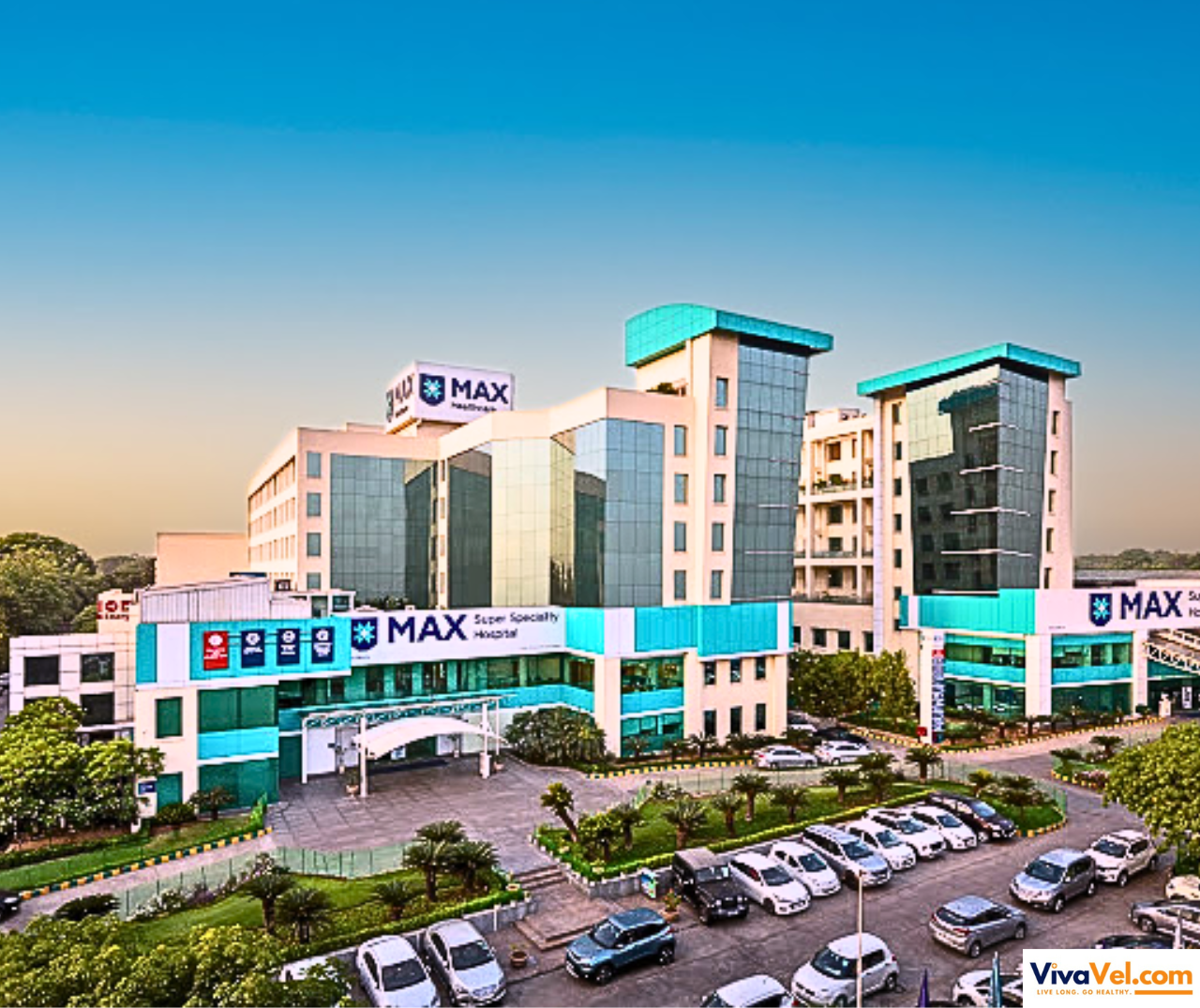
Max Super Speciality Hospital, Saket
Press Enclave Road, Saket, New Delhi
2005
539
Super Specialty
Address & Nearby Location
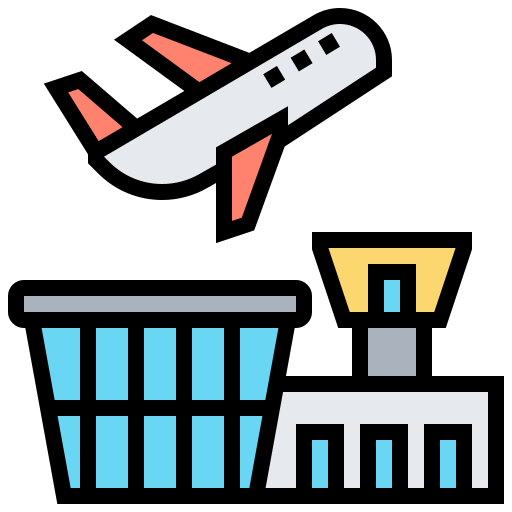 Airport (Indira Gandhi International Airport):
Airport (Indira Gandhi International Airport):
Distance: 19.2 kilometers | Travel time: 32 minutes by car
 Railway (New Delhi Railway Station, Paharganj Side):
Railway (New Delhi Railway Station, Paharganj Side):
Distance: 16.4 kilometers | Travel time: 43 minutes by car
 Metro (Nearby Saket Metro Station):
Metro (Nearby Saket Metro Station):
Distance: 2.8 kilometers | Travel time: 7 minutes by car
About Doctor
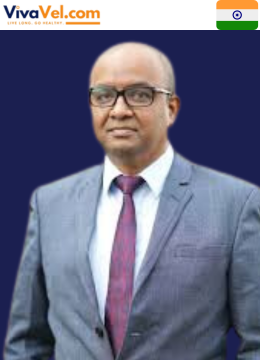
Dr. Rayaz Ahmed
Senior Director - Oncology
Oncologist | Hematologist
14 Years Experience | 1000 Surgeries & Procedures
Max Super Speciality Hospital, Saket
Dr. Rayaz Ahmed is a director with expertise in Cancer Care/Oncology, Bone Marrow Transplant, Hematology Oncology, and hematology (Hematology) at Max Super Speciality Hospital, Saket. With more than 17 years of experience, he has performed over 1,000 bone marrow transplants. Before his current role, Dr. Ahmed worked as a senior consultant in the hematology department at...
-
Max Super Specialty Hospital, Saket, is one of South Delhi's premier hospitals, renowned for its world-class healthcare and advanced medical technologies.
-
With over 530 beds, it is among India's top hospitals, providing a wide array of specialized services to local and international patients.
-
The hospital excels in critical areas like cardiology, oncology, nephrology, neurology, and organ transplants, offering comprehensive treatments, including heart, lung, liver, and kidney transplants.
-
Max Super Specialty Hospital's skilled medical team is dedicated to delivering the highest standards of patient care, aided by cutting-edge diagnostic and treatment technology.
-
Known for minimally invasive procedures, including weight-loss surgeries and complex neurological and reconstructive surgeries, the hospital has cared for over 3.4 million patients.
-
Accredited by NABH and JCI, Max Super Specialty Hospital adheres to rigorous international standards, ensuring patient safety and quality care.
-
For medical travelers seeking expert healthcare in India, Max Super Specialty Hospital combines exceptional treatment options with compassionate care, making it a trusted destination for complex and life-saving procedures.
-
This facility offers an array of state-of-the-art diagnostic and therapeutic technologies, including the first in Asia and India.
-
The facility, with over 539 beds, includes:
-
Specialized units for neonatal and pediatric care
-
TrueBeam Linac with Exactrac
-
Bi-Plane Digital Cath Lab
-
Holmium Laser
-
Da Vinci Xi Robotic System
-
4D ECHO Machine
-
LINAC
-
3.0 Tesla MRI
-
Novalis Tx
-
-
Notably, it is the first in Asia and the third in the world to install an intraoperative MRI, the Brain Suite.
-
It is a leading tertiary care facility with advanced cardiac life support ambulances and air evacuation services.
-
The hospital also offers emergency care, ambulance transportation, a blood bank, a cafeteria, a waiting lounge, a prayer room, a bank and ATM, and a 24/7 pharmacy.
-
Complete transplant cost (up to 28 days)
-
Room rent & surgeon fees (within the package period)
-
Investigations, pharmacy, consumables, and blood bank services as per protocol
-
Physiotherapy and implants as per protocol
-
Hospital administration charges (within the package period)
-
Donor bone marrow/peripheral blood stem cell harvesting
-
Patients requiring salvage chemotherapy for active malignancies
-
Cases with significant comorbidities or infections at the time of transplant
-
GVHD requiring second-line treatment (Refractory GVHD)
-
Platelet refractory cases requiring multiple transfusions and prolonged stay
-
Any hospital stay beyond 28 days
-
Unrelated complications or major readmissions
-
Donor lymphocyte infusion, rescue transplant for primary graft failure, stem cell top-up infusion, CMV reactivation requiring prolonged hospitalization.
-
Cross consultations, unplanned procedures, investigations, or surgeries
-
Discharge medicines
-
All services beyond the package period will be charged additionally
Options Near Max Super Specialty Hospital, Saket
1. Hotels
Several hotels are near the hospital, offering various amenities for a comfortable stay. The estimated cost for good accommodation near the hospital is approximately USD 60 - USD 80 per night.
2. Service Apartments
Fully furnished service apartments are available for long-term stays. These apartments offer a home-like environment and amenities such as kitchen facilities, housekeeping, and laundry services, making them a convenient option for patients and their attendants.
3. Guest Houses
Budget-friendly guest houses are also available near the hospital, providing basic yet comfortable accommodations. These options are suitable for those looking for economical stays while undergoing treatment.
Day 1: Arrival in New Delhi
-
Arrival at Indira Gandhi International Airport
-
Meet & greet with the health tourism representative
-
Transfer to hotel/service apartment/guest house near Max Super Specialty Hospital, Saket
-
Check-in and rest after travel
-
Orientation session covering the treatment process, hospital facilities, and itinerary overview.
Day 2: Pre-Transplant Evaluations & Consultation
-
Transfer to Max Super Specialty Hospital
-
Initial consultation with the BMT specialist
-
Pre-transplant investigations, including blood tests, imaging, and health screenings
-
Discussion on donor compatibility and transplant process
-
Rest at accommodation
Day 3: Additional Medical Tests & Donor Evaluation
-
Donor evaluation for allogenic transplant cases
-
Additional tests as per protocol (cardiac, pulmonary, infectious disease screenings)
-
Nutritional and physiotherapy consultation
-
Leisure time for patients and attendants
Day 4-5: Pre-Transplant Preparation
-
Conditioning therapy (chemotherapy or radiation as per treatment plan)
-
Donor bone marrow/peripheral blood stem cell harvesting (for allogenic transplants)
-
Psychological counseling and wellness sessions
-
Dietary adjustments, as advised by the medical team
-
Leisure activities or short sightseeing (if approved by the doctor)
Day 6: Bone Marrow Transplant Procedure
-
Stem cell infusion or bone marrow transplant under medical supervision
-
Close monitoring in a sterile BMT unit
-
Family support and counseling sessions
Day 7-14: Post-Transplant Hospitalization & Monitoring
-
Daily medical check-ups, infection control, and supportive care
-
Transfusion and medications as required
-
Physiotherapy and rehabilitation sessions
-
Family and caregiver engagement
Day 15-28: Recovery & Post-Transplant Care
-
Continued hospitalization and observation for any complications such as Graft Versus Host Disease (GVHD)
-
Regular blood count monitoring and immune system support
-
Personalized dietary and physiotherapy guidance
-
Discharge planning and homecare instructions
Day 29-35: Post-Discharge Recovery in Accommodation
-
Follow-up consultations at Max Super Specialty Hospital
-
Monitoring for signs of infection or transplant-related complications
-
Optional light sightseeing or cultural experiences in Delhi (if medically permitted)
-
Rest and recovery at accommodation
Day 36: Final Medical Assessment & Departure Preparation
-
Final check-up and clearance by the medical team
-
Detailed medical reports and future care guidelines
-
Transfer to the airport for departure
Accommodation & Local Support Options
-
Hotels: Comfortable stay with amenities, estimated cost USD 60 - USD 80 per night
-
Service Apartments: Long-term stay with kitchen and housekeeping facilities
-
Guest Houses: Budget-friendly option for economical stays
Additional Services
-
24/7 medical concierge support
-
Interpreter services (if required)
-
Transportation assistance for hospital visits and local travel
-
Sightseeing tours for patient attendants
A Bone Marrow Transplant (BMT) is a sophisticated medical procedure that involves replacing damaged or diseased bone marrow with healthy stem cells. The bone marrow is the soft, spongy tissue inside bones that creates blood cells. Conditions such as leukemia, lymphoma, multiple myeloma, and certain blood disorders can compromise it.
During a Bone Marrow Transplant, the patient's unhealthy bone marrow cells are first eradicated using high doses of chemotherapy or radiation therapy. This process creates space for the new, healthy stem cells to thrive. These healthy stem cells can be sourced from the patient (autologous transplant) or a compatible donor (allogeneic transplant) and are then introduced into the patient's bloodstream through an IV line, similar to a blood transfusion.
Once inside the body, the newly introduced stem cells migrate to the bone marrow, where they initiate the production of new, healthy blood cells. This regeneration process is crucial in helping the body generate an adequate supply of blood cells, fortifying the immune system, and improving overall health.
Patients undergoing Bone Marrow Transplants may need to be hospitalized for several weeks to monitor their recovery and closely minimize the risk of infections. Common side effects of the procedure include nausea, fatigue, and an increased susceptibility to infections due to the weakened immune system during treatment. Following the transplant, the immune system can take several months, or even a year, to fully recuperate.
While Bone Marrow Transplants hold the potential to cure or significantly improve the prognosis of various severe conditions, it is imperative to consult with a healthcare provider to thoroughly assess the associated risks and benefits to determine the most appropriate treatment option. Early detection, finding suitable donors, and timely intervention substantially enhance the likelihood of success in Bone Marrow Transplants.
Given the complexity of these transplants, a specialized medical team is essential for their proper management and care. Therefore, engaging in comprehensive discussions with healthcare providers is critical for understanding this procedure's potential benefits and risks.
 Patients who may need a bone marrow transplant (BMT) often exhibit symptoms as a result of their underlying disease or treatment, such as:
Patients who may need a bone marrow transplant (BMT) often exhibit symptoms as a result of their underlying disease or treatment, such as:
- Fatigue or Weakness: This can be caused by anemia or reduced red blood cells.
- Frequent Infections: A low white blood cell count can lead to recurrent infections.
- Easy Bruising or Bleeding: A low platelet count can result in easy bruising or bleeding.
- Unexplained Weight Loss: This is a common symptom in various cancers and blood disorders.
- Bone Pain: Pain or bone tenderness often associated with bone marrow diseases.
 A Bone Marrow Transplant (BMT) is often recommended for the following conditions:
A Bone Marrow Transplant (BMT) is often recommended for the following conditions:
- Blood Cancers: Leukemia, lymphoma, and multiple myeloma. BMT may be considered when these conditions do not respond to other treatments.
- Bone Marrow Disorders: Such as aplastic anemia or myelodysplastic syndrome. BMT can be an option for patients with these disorders when other treatments have not been successful.
- Genetic Diseases: Examples include sickle cell anemia or thalassemia. BMT may be a potential treatment for individuals with these genetic conditions.
- Immune Deficiency Disorders: This includes severe combined immunodeficiency (SCID) and autoimmune diseases. BMT may be considered for individuals with these disorders to help restore proper immune function.
 Undergoing a bone marrow transplant is a complex process that typically involves consultation with a hematologist or oncologist. It is essential to seek medical attention if any of the following apply to you:
Undergoing a bone marrow transplant is a complex process that typically involves consultation with a hematologist or oncologist. It is essential to seek medical attention if any of the following apply to you:
- You have received a diagnosis of a blood or bone marrow disorder.
- Conventional treatments have proven ineffective.
- You observe a deterioration in your overall health, such as increased unexplained infections or bleeding.
 A Bone Marrow Transplant (BMT) is a potentially life-saving procedure. Still, it carries certain risks that should be carefully considered:
A Bone Marrow Transplant (BMT) is a potentially life-saving procedure. Still, it carries certain risks that should be carefully considered:
- Graft-versus-host disease (GVHD) occurs when the donor cells recognize the recipient's body as foreign and attack it. GVHD can affect the skin, liver, and digestive system.
- Increased Susceptibility to Infections: After the transplant, the immune system is compromised, leaving the recipient more vulnerable to bacterial, viral, and fungal infections.
- Risk of Organ Damage: Complications such as liver, lung, and heart damage can arise due to the high-dose chemotherapy and radiation therapy involved in the transplant process.
- Potential for Bleeding and Anemia: The transplanted bone marrow may take time to produce enough blood cells, leading to an increased risk of bleeding and anemia.
- Infertility and Hormonal Changes: Chemotherapy and radiation therapy can impact reproductive hormones, potentially leading to infertility or changes in hormonal levels.
 Before the procedure, several tests are done to make sure everything matches up and to check the patient's overall health:
Before the procedure, several tests are done to make sure everything matches up and to check the patient's overall health:
- Complete Blood Count (CBC): This test checks the levels of different types of cells in the blood.
- HLA Typing: This test helps find a donor that matches the patient.
- Bone Marrow Biopsy: This test checks the condition of the bone marrow.
- Organ Function Tests: These tests evaluate how well the liver, kidneys, and heart work.
- Infectious Disease Screening: This test looks for any active infections.
 There are two primary categories of bone marrow transplants:
There are two primary categories of bone marrow transplants:
- Autologous Transplant: This type of transplant involves using the patient's stem cells. The patient's stem cells are collected and stored before being infused into their body following intensive treatment, such as chemotherapy.
- Allogeneic Transplant: In this type of transplant, stem cells from a donor are used. The donor can be a family member or an unrelated individual who is a suitable tissue type match for the patient.
The Transplant Process:
- Pre-Transplant Treatment: This phase involves administering intensive treatment to eradicate diseased cells and prepare the patient's body for the transplant procedure.
- Transplant Day ("Day Zero"): On this day, the harvested stem cells are infused into the patient's bloodstream to begin the transplant process.
- Post-Transplant Care: Following the transplant, the patient requires close monitoring for infections, management of potential side effects, and ensuring the successful engraftment and growth of the new cells.
 Do's:
Do's:
- Maintain good personal hygiene by washing your hands regularly to prevent the spread of germs and illness.
- Consume a balanced diet rich in fruits, vegetables, and whole grains to provide your body with essential nutrients for recovery and overall well-being.
- Adhere to your prescribed medication regimen as instructed by your healthcare provider and attend scheduled check-up appointments to monitor your progress.
- Prioritize adequate rest and avoid physically strenuous activities to support your body's healing process.
 Don'ts:
Don'ts:
- Minimize exposure to large gatherings and individuals displaying symptoms of illness to reduce the risk of contracting contagious diseases.
- Exercise caution with food safety by ensuring that all meals are thoroughly cooked to prevent foodborne illnesses.
- Consult your healthcare provider before taking any herbal remedies or over-the-counter medications to avoid potential interactions with prescribed treatments.
- Take precautions to prevent injuries and minimize activities resulting in bruises or physical harm.


